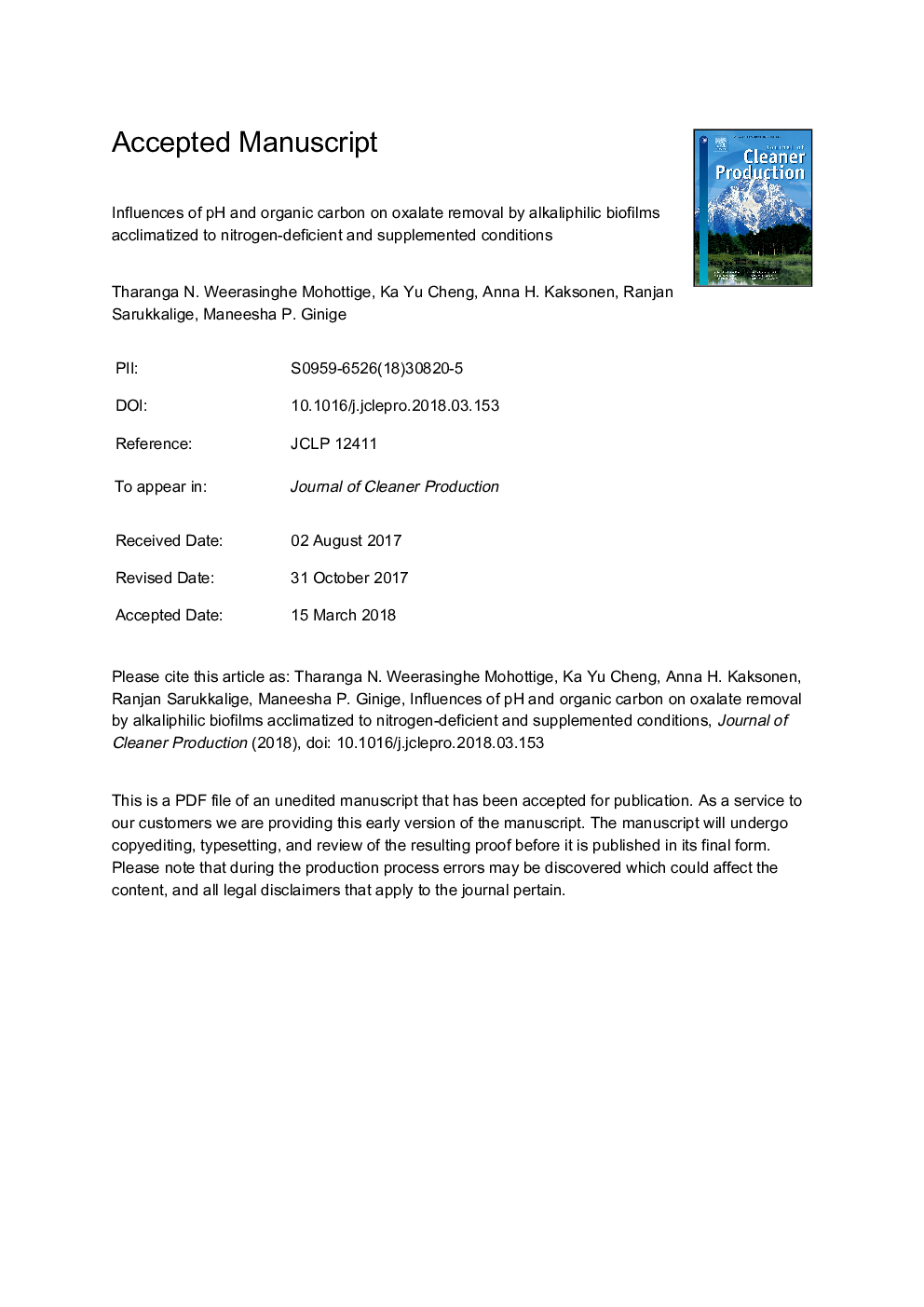| Article ID | Journal | Published Year | Pages | File Type |
|---|---|---|---|---|
| 8095979 | Journal of Cleaner Production | 2018 | 33 Pages |
Abstract
Accumulation of organic impurities (specifically oxalate) in Bayer liquor is a significant problem for alumina refineries. Microbial degradation is a low-cost solution to the problem, but hostile conditions of Bayer liquor (pHâ¯>â¯14 and nitrogen (N) deficiency) makes it challenging. The solution remains with selection of an appropriate haloalkaliphilic culture and alumina refineries currently have access to two types of bacterial cultures (N-supplemented and N-deficient cultures). To date there is no comparative assessment of the two cultures to examine which one is more suitable to reduce operational risks (i.e. with higher removal efficiencies over a broader range of pH) and costs. Hence, this study compared oxalate removal efficiencies of two packed bed biofilm reactors (N-supplemented and N-deficient) on exposure to a range of influent pH and simple organic compounds. Both reactors were operated (>265 days) at pH 9 and pH influence was compared in batch experiments. Results suggested that both biofilms could tolerate a broad pH range (7-10). The optimal specific oxalate removal rate of N-supplemented reactor was restricted to pH 9, whereas the maximal rate was maintained over a wider pH range (7-8) in N-deficient reactor. In this range, the N-deficient system outperformed the N-supplemented system (105 vs. 130â¯mg-oxalate/h.g-biomass). Although acclimatised primarily with oxalate, both biofilms simultaneously oxidised other organics (acetate, formate, malonate and succinate) without a noticeable influence on oxalate removal. This study suggests that N-deficient systems are more versatile and better suited to remove organic impurities in Bayer liquor.
Related Topics
Physical Sciences and Engineering
Energy
Renewable Energy, Sustainability and the Environment
Authors
Tharanga N. Weerasinghe Mohottige, Ka Yu Cheng, Anna H. Kaksonen, Ranjan Sarukkalige, Maneesha P. Ginige,
